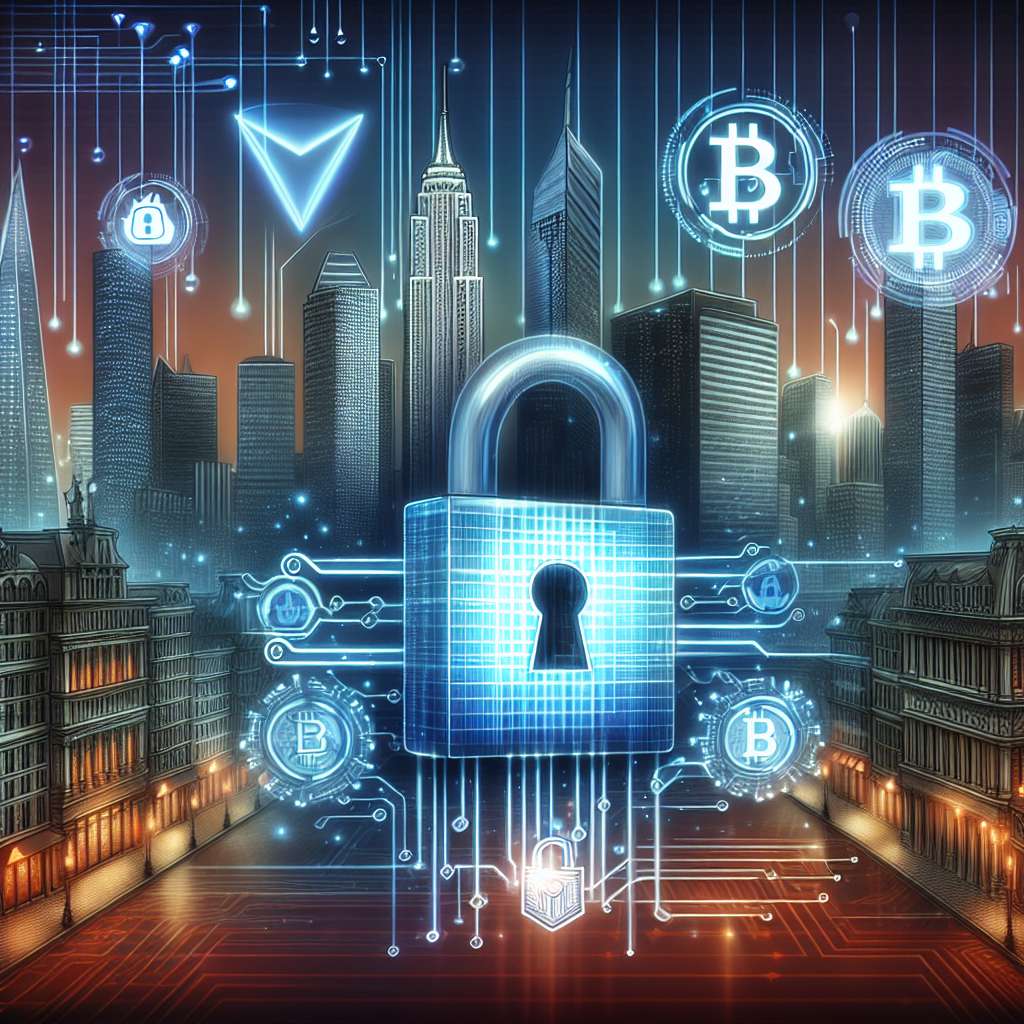How can I secure my digital wallet to protect my cryptocurrency investments?
What are some effective strategies to ensure the security of my digital wallet and protect my investments in cryptocurrencies?

5 answers
- Securing your digital wallet is crucial to safeguard your cryptocurrency investments. Here are some effective strategies: 1. Use a hardware wallet: Consider using a hardware wallet, such as Ledger or Trezor, to store your cryptocurrencies offline. These wallets provide an extra layer of security by keeping your private keys offline, away from potential online threats. 2. Enable two-factor authentication (2FA): Enable 2FA on your digital wallet to add an extra layer of protection. This will require you to provide a second form of authentication, such as a code from a mobile app, in addition to your password. 3. Keep your software up to date: Regularly update your digital wallet software to ensure you have the latest security patches and bug fixes. Developers often release updates to address vulnerabilities and improve security. 4. Use strong, unique passwords: Create strong and unique passwords for your digital wallet. Avoid using common passwords or reusing passwords across multiple platforms. Consider using a password manager to securely store and generate complex passwords. 5. Be cautious of phishing attempts: Be vigilant of phishing attempts, where attackers try to trick you into revealing your wallet credentials. Always double-check the authenticity of websites and emails before entering your sensitive information. Remember, the security of your digital wallet is your responsibility. By following these strategies, you can significantly reduce the risk of unauthorized access and protect your cryptocurrency investments.
 Jan 12, 2022 · 3 years ago
Jan 12, 2022 · 3 years ago - Securing your digital wallet is no joke! It's like protecting your own treasure chest. Here are some tips to keep your cryptocurrency investments safe: 1. Choose a reputable wallet: Make sure to select a digital wallet from a trusted provider. Research different wallets and read reviews to ensure their security features and reputation. 2. Backup your wallet: Regularly backup your wallet's private keys or seed phrase. Store these backups in a secure location, preferably offline or in a hardware wallet. 3. Beware of public Wi-Fi: Avoid accessing your digital wallet or making transactions on public Wi-Fi networks. These networks are often unsecured, making it easier for hackers to intercept your data. 4. Use a VPN: If you need to access your digital wallet on the go, consider using a virtual private network (VPN) to encrypt your internet connection and protect your data. 5. Educate yourself: Stay informed about the latest security practices and threats in the cryptocurrency space. Join online communities and forums to learn from experienced users and share knowledge. Remember, it's better to be safe than sorry when it comes to securing your digital wallet and protecting your hard-earned cryptocurrencies!
 Jan 12, 2022 · 3 years ago
Jan 12, 2022 · 3 years ago - At BYDFi, we understand the importance of securing your digital wallet to protect your cryptocurrency investments. Here are some best practices to keep your wallet safe: 1. Use a reputable wallet: Choose a digital wallet from a trusted provider with a proven track record in security. Look for wallets that have undergone third-party audits and have a strong reputation in the crypto community. 2. Enable multi-factor authentication (MFA): Use MFA to add an extra layer of security to your wallet. This can include biometric authentication, hardware tokens, or SMS verification codes. 3. Regularly review your wallet activity: Keep an eye on your wallet's transaction history and monitor for any suspicious activity. If you notice any unauthorized transactions, take immediate action to secure your funds. 4. Keep your wallet software up to date: Install updates and patches for your wallet software as soon as they become available. This helps protect against known vulnerabilities and ensures you have the latest security features. 5. Be cautious of phishing attempts: Be wary of phishing emails, websites, or social media messages that try to trick you into revealing your wallet credentials. Always verify the authenticity of the source before providing any sensitive information. Remember, securing your digital wallet is an ongoing process. Stay informed about the latest security practices and adapt your strategies accordingly.
 Jan 12, 2022 · 3 years ago
Jan 12, 2022 · 3 years ago - Securing your digital wallet is essential to protect your cryptocurrency investments. Here are some practical tips to keep your wallet safe: 1. Use a cold wallet: Consider using a cold wallet, such as a hardware wallet or a paper wallet, to store your cryptocurrencies offline. Cold wallets are not connected to the internet, making them less vulnerable to online threats. 2. Enable biometric authentication: If your digital wallet supports biometric authentication, such as fingerprint or face recognition, enable it. This adds an extra layer of security by requiring your unique biometric data to access your wallet. 3. Regularly check for software updates: Keep your digital wallet software up to date to ensure you have the latest security patches. Developers often release updates to address vulnerabilities and improve the overall security of the wallet. 4. Use a strong password: Create a strong and unique password for your digital wallet. Avoid using common words or easily guessable combinations. Consider using a password manager to generate and store complex passwords. 5. Be cautious of public Wi-Fi: Avoid accessing your digital wallet or making transactions on public Wi-Fi networks. These networks are often unsecured, making it easier for hackers to intercept your data. Remember, taking proactive measures to secure your digital wallet is crucial to protect your cryptocurrency investments.
 Jan 12, 2022 · 3 years ago
Jan 12, 2022 · 3 years ago - Securing your digital wallet is of utmost importance to protect your cryptocurrency investments. Here are some steps you can take: 1. Use a reputable wallet provider: Choose a digital wallet from a reputable provider with a strong track record in security. Look for wallets that have undergone external audits and have a robust security infrastructure. 2. Enable transaction notifications: Set up transaction notifications on your digital wallet to receive alerts for any outgoing transactions. This way, you can quickly identify and address any unauthorized activity. 3. Implement strong authentication: Use strong authentication methods, such as biometrics or hardware tokens, to add an extra layer of security to your wallet. This makes it harder for unauthorized individuals to gain access. 4. Regularly review your wallet activity: Regularly review your wallet's transaction history and monitor for any suspicious activity. If you notice any unauthorized transactions, take immediate action to secure your funds. 5. Keep your wallet software up to date: Install updates and patches for your wallet software as soon as they are released. These updates often include security enhancements and bug fixes. Remember, securing your digital wallet requires constant vigilance and proactive measures to protect your cryptocurrency investments.
 Jan 12, 2022 · 3 years ago
Jan 12, 2022 · 3 years ago
Related Tags
Hot Questions
- 84
How can I minimize my tax liability when dealing with cryptocurrencies?
- 82
What are the best practices for reporting cryptocurrency on my taxes?
- 79
What are the advantages of using cryptocurrency for online transactions?
- 75
How does cryptocurrency affect my tax return?
- 70
What are the tax implications of using cryptocurrency?
- 68
How can I buy Bitcoin with a credit card?
- 40
What is the future of blockchain technology?
- 36
What are the best digital currencies to invest in right now?
